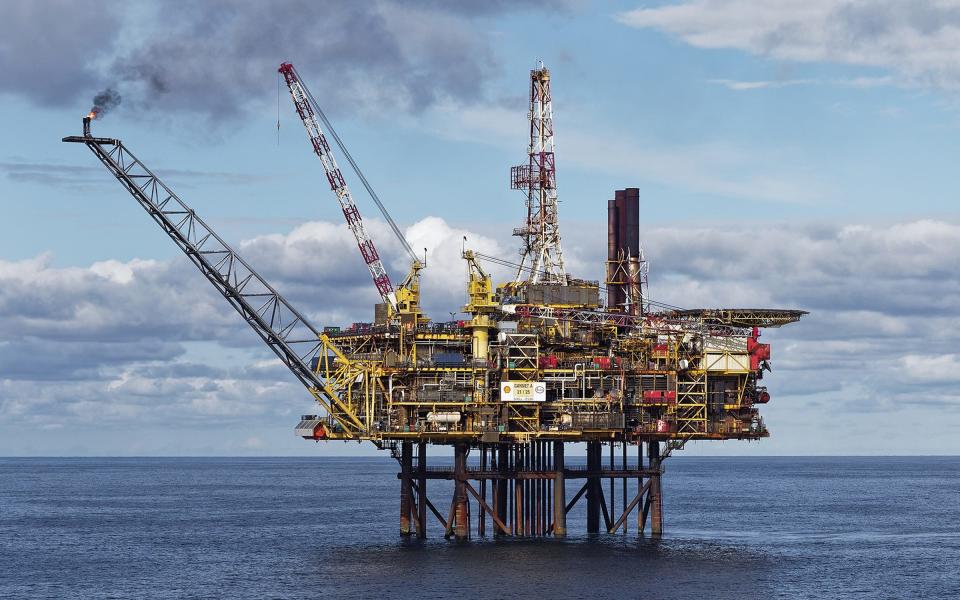Taxpayers to foot Shell’s bill for dismantling toxic North Sea oil rigs

Taxpayers are to pay hundreds of millions of pounds to cover the cost of dismantling some of Shell’s dirtiest oil rigs in the North Sea.
It comes after the energy giant was ordered to strip thousands of tonnes of waste from decommissioned oil platforms despite the company’s attempts to keep them in place.
Shell has spent the past decade lobbying for an exemption from removing toxic sludge from three platforms located in its Brent oil and gas field over claims it could risk workers’ lives and hurt the taxpayer.
That was on the basis that the Treasury will have to refund the business huge amounts for the clean-up project, in addition to £600m of rebates that Shell has claimed since 2018.
However, last month, decision-makers under the Ospar Convention – which governs marine pollution – confirmed that the relevant waste in North Sea platforms must be removed.
The decision, which Shell argues is not yet final, has been welcomed by environmental groups such as Greenpeace.
The Ospar Convention is an agreement between 15 European governments, including the UK, which is aimed at protecting the environment in the north-east Atlantic.
Dominic Pattinson, executive secretary of the Ospar Commission, confirmed that Shell was obliged to remove all toxic waste from its structures in the North Sea.
If upheld, the decision will be costly for both Shell and the Treasury, as taxpayers’ money is used to fund the cost of decommissioning North Sea platforms.
Shell’s tax report shows that the company has already claimed £600m in UK rebates since 2018, including £43m last year.
However, this compares to the £20bn of tax revenues generated by the Brent oil field since 1976.
The Treasury treats the cost of decommissioning offshore assets as a genuine business expense which can be offset against profits made in previous years.
It is not a subsidy but it does represent a loss to the Exchequer.
Estimates show that the cost of removing waste from Shell’s rigs could be north of £400m.
The Brent oil field was discovered in 1971 off the northeast coast of Scotland, between the Shetland Islands and Norway.
Its vast size led to the creation of four platforms to extract oil, which since collectively produced the equivalent of 3bn barrels.
Each platform is supported by 165m-tall legs built to withstand 200 mph winds and 80-foot waves.
The latest decision centres on the fate of those legs as they have also served as oil storage tanks.
Shell estimates it would take up to 1,000 years for them to decay if left in the sea, although Ospar has ruled that the oily contents of the legs must be removed.
A Shell spokesman said: “Decommissioning Brent is a complex, major engineering project, because of its size, age, infrastructure, and the harsh environment of the North Sea. Our recommendations are the result of 10 years of research, involving more than 300 scientific and technical studies.
“We established an independent group of scientific experts to review the findings and ensure all feasible decommissioning options were investigated thoroughly.
“We submitted our recommendations following extensive stakeholder engagement and only when we were confident that they were, on balance, the safest, most environmentally sound and technically achievable solution.”
David Santillo, a senior scientist at Greenpeace International, said it was unacceptable for Shell to leave such waste in place for centuries but accepted that the task will not be easy.
Tessa Khan, executive director of campaign group Uplift, criticised the Government for passing on decommissioning costs to the taxpayer.
She said: “The oil giant, which made over £22bn in profit last year, isn’t even on the hook for the whole clean-up operation. Thanks to tax breaks for oil and gas companies, UK taxpayers would have to cough up a large proportion of the decommissioning costs, even when the industry is rolling in profits.”
A Department for Energy Security and Net Zero spokesman said: “Decommissioning is undertaken in accordance with UK and international obligations, in a safe and cost-effective manner while minimising risk to the environment. All proposals are considered on a case-by-case basis, subject to ongoing regulatory assessment.”

 Yahoo Finance
Yahoo Finance 